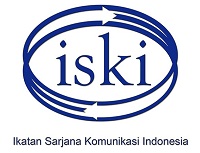Kompetisi Industri Transportasi: Tinjauan Komunikasi Pemasaran Jasa PT Kereta Api Indonesia
Abstract
Keywords
Full Text:
PDF (Bahasa Indonesia)References
Andreassen, Tor William dan Bodil Lindestead. “Customers Loyalty and Complex Services.” International Journal of Service Management, Vol.9, No. 1 Hal 7-33.
Asto S. Subroto. “Dari Mana Asalnya Loyalitas Konsumen?” Majalah SWA Sembada No. 02/XXI/ 19 Januari-2 Februari 2005. Case Center Departemen Manajemen Fakultas Ekonomi Universitas Indonesia. 2006. Case in Management-Indonesian’s Real Companies. Jakarta: Penerbit Salemba Empat.
Heskett, James L. Sasser Jr, W. Earl., dan Schlengsinger. 1997. The Service Profit Chain. USA: The Press.
Schiffmen, Leon G., & Leslie Lazar Kanuk. 2004. Consumer Behavior (5th Ed.). USA: Prentice-Hall, Pearson Education, Inc.
Zeithaml, Valerie A, dan M.J. Bitner. 2003. Service Marketing (3rd Edition). USA: McGraw Hill Co, Inc.
Zeithaml, Valerie A., A. Parasuraman and L.L. Berry. 1990. Delivering Quality Service-Balancing Customer Perceptions and Expectations.
USA: The Free Press.
www.kereta-api.com Tanggal akses terakhir
DOI: https://doi.org/10.29313/mediator.v9i1.1147
Refbacks
- There are currently no refbacks.

This work is licensed under a Creative Commons Attribution 4.0 International License























